 "Your writing is so good! You have so much talent!" No. Nope. Writing improves with practice. When I was a teen, I spent time every day writing. Writing on a daily basis means I got a lot of practice, and that daily practice improved my writing. Not talent. When you write every day, your brain learns to think faster and more efficiently, allowing you to put out better writing. Whether you are doing freelance writing, creative writing, or academic writing, they all benefit from writing being a daily habit. A writing routine is hard to set at first, but if you stay consistent, you’ll see improvement. Here are a few daily writing tips you can follow: 1. Put it on your schedule. Put it in your phone, write it on a calendar, make it once a day or twice a day - whatever works - make the time. Scheduling it in makes it easier for you to do every day, and every day you sit your butt down to write, it becomes a stronger, easier habit. If you’re serious about becoming a great writer, your writing time should be treated seriously—and a daily scheduled writing session is the first step in getting into a routine. 2. Create a writing zone. Give yourself a designated writing space or place where you can focus on the task at hand. A distraction-free zone works best, but write where you can be comfortable and productive. If that is on your bed, fine. If it's at your sofa, fine. Table? Fine. Find a space, make sure it is clear and comfortable for you, add some snacks if you need to, put the phone away in another room, and sit down to write for your dedicated amount of time. 3. Set a daily goal. Start your writing goals small. You could set your goal at one page a day, ten pages a day, 500 words a day, or as many words as you can cram on the page in 15 minutes. By giving yourself a page or word count to meet each day, you help set reasonable expectations for yourself and your progress. 4. Consider it a daily habit. Viewing writing as a habit—something ingrained in you that you cannot help but do—can get you into the spirit of writing more often. Whether you’re trying to write a number of words in a single day or get as much on the page as you can in five minutes, just showing up to write every day is enough to build the habit. You could even try blogging or journaling just to get into the practice. It doesn't have to be one specific project. Just write! 5. Do some free-style writing. Sometimes all your brain needs is a little exercise. In "freewriting" you follow the impulses of your mind, allowing thoughts and inspiration to appear on paper. If you find yourself stuck on a writing project, or need inspiration, put your pen to paper (or fingers to keys) and write down whatever words come to mind. Don’t worry about typos, grammar, editing, or rewriting during this process, just write—it’s better than staring at a blank page. 6. Write in the morning time. Kick-start your morning with some writing time— personally, for me, this is easier because my brain has not been bogged down with the events and exhaustion of the day. It is fresh and can focus better, even if I am still a little groggy. I also find it helps me complete a goal for the day and it makes me feel accomplished and productive! 7. Join a writing group. Writing groups or workshops can give you other people to work with and help hold you accountable. A group can keep you writing frequently by giving out writing prompts, assignments, or just good advice. You don’t have to take writing advice given by others, but feedback can inform or inspire you further in your work, keeping you motivated to become a good writer and breaking through any writer’s block or insecurities you might have. I am in, not one, but TWO writing groups. They are a lot of fun (maybe too much fun) and really keep me going. 8. Be fearless. Sometimes the only thing stopping a writer from writing is themselves. Insecurity and a lack of confidence can lead to you procrastinating, which only causes your writing progress to stagnate. When you start writing, keep writing, even if it’s only for 10 minutes. It probably won’t be perfect (or even good if it’s your first time writing), but that’s okay—the more you write, the better you become! Want to Learn More?Do you need help maintaining a writing schedule? Do you not know where to start? Do you want to join a writing group? I'm here to help you. Send me a message! I will schedule a call with you, so we can get you started. 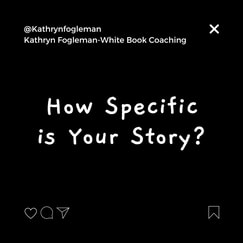
We don’t think in the abstract. If we can’t visualize it, we can’t feel it. Readers love to experience vicariously, and that is achieved with specifics. Every particular MUST pertain to the story. It not only has to tell us something we don’t know, but something we need to know right now.
A universal theme or emotion is only accessible through a very specific story that focuses on how it specifically affects one person. Some specifics that you can and should include are:
The reader already knows what THE world looks like. What they are dying for is a glimpse of YOUR world. How do they get that glimpse?
What is your next step?
Is this overwhelming? Does the idea of being specific, but not TOO specific make your head explode? Do you want to be the author of the next best seller, but fear you won't meet your goals and expectations?
I'm hear to help. You can subscribe HERE and receive access to free PDF books that will walk you through the steps of writing a compelling story with dynamic characters. If you feel like you need more than free resources, my coaching programs can take you from overwhelmed and uncertain, to confident and published! Recommended books!
The images below are Amazon Affiliate links. So, when you purchase a book with those links, I get a small commission, and the author does too!
Just remember, not everybody's going to like your stuff. - F.P. Spirit
The only author who has never received a bad review is an author who has never published a book. All published authors - new or famous, good or bad - have bad reviews. There is always haters out there.
I am one of those very few and fortunate people who are not bothered by bad reviews or mean comments. My mother taught me how to see it as feedback, and if there was nothing that I could apply from it, to mute it in my mind and ignore it. One of my first 3 star reviews on The Dragon's Son talked about how my book was "too much like Lord of the Rings". Okay. Good! That's a compliment to me. Thank you. A 1 star review stated "the author clearly didn't know what the difference between steel and steal was". Okay. I did a word search to see if there was an editing error. There was NOT an error anywhere. So, move along. Clearly the reviewer didn't know what the difference between steel and steal was either... Another 3 star said that, while they liked the book, they didn't understand the point of the "random family" in the middle of the story. Okay. After a quick read from a fresh perspective, I understand that I did next to nothing to show the reader why this "random family" was important to the story. They just existed as a bit of fun and games. So, I needed to rewrite a few chapters (cough-theEntireBook-cough) to make sure that it was clear why this family was important to the main character's story. Granted, reviews can make a big impact on your overall rating on Amazon. You don't want to ignore the impact. That's why you should always assess what the reviews say, and fix what you can. If your book is just truly horrible, admit it! Get some help to make it better (like, from a writing coach or ghost writer). Build a "street team" of people who you give PDF copies to in exchange for honest reviews. Reassess your story with each review/comment/ note from your street team to make it the best book possible. Then, once you are ready to republish it, ask them to leave their final reviews on Amazon to give your book a big, positive push in the rankings! If you generally get good reviews, but have one or two haters who make your average fall to 4 stars or lower, then reach out to friends and family for support. Put the book on sale for them, encourage them to buy it while on sale, and ask them to leave some helpful reviews. That will push the ratings up just a bit to counteract the haters. Also, you can reach out to "Bookish" accounts on Instagram that read books like yours. Offer a couple of them a free or discounted book in exchange for a helpful review. Just as every book will have haters, so every book will also have lovers. You just have to find them, reach out to them, and ask them to support your baby. ♥ Recommended books with bad reviews
The images are Amazon Affiliate links. So, if you purchase one of these books, you'll support the author and I will get a small commission from it!
As a writer, what is your next step?
Is this overwhelming? Does the idea of writing a pager turner sound impossible? Do you want to be the author of the next best seller, but fear you won't meet your goals and expectations?
I'm hear to help. You can subscribe HERE and receive access to several free PDF books that will walk you through the steps of writing a compelling story with dynamic characters, PLUS be the first to get access to special coaching programs!
I've gotten back into Vlogging again! Yay!
On my YouTube, I share book reviews, book writing/publishing/marketing tips, and the occasional original song. Here is one of my recent reviews of a book about writing books! It is fantastic, and I highly recommend it. Be sure to subscribe to my YouTube channel, and if there are any books you want me to review, or any writing questions you have, please leave them in a comment on a video or send me a message! What is your next step as an author?
Is this overwhelming? Does the idea of writing a pager turner sound impossible? Do you want to be the author of the next best seller, but fear you won't meet your goals and expectations?
I'm hear to help. You can subscribe HERE and receive access to several free PDF books that will walk you through the steps of writing a compelling story with dynamic characters, PLUS be the first to get access to special coaching programs!
If you aren't familiar with NaNoWriMo, then you can learn more by clicking the link. National Novel Writing Month is a daunting but straightforward challenge: to write 50,000 words of a novel in 30 days. Since 1999, every year on November 1, hundreds of thousands of people begin to write, determined to end the month with 50,000 words of a brand new novel. They enter the month as elementary school teachers, mechanics, or stay-at-home parents. They leave novelists. It's a lot of fun, whether you are actively participating, or just watching participants suffer. ?
If you are thinking about participating in NaNo, then it is wise to plan and prepare as much as you can, so that you can focus on reaching your 1,700 word count every day, and worry less about writers block and the panic of "WHAT NEXT?!" This doesn't mean you have to outline (for those of you who hate outlines). This means you simply need to ask your story some compelling questions, and make sure all the gears are oiled and working! I have 20 writing prompts for you to use to really get to know your story structure, your characters, and your themes (some are linked to more in-depth blog posts!):
Finally, write down what possible themes there are to explore. Remember that readers want a story that is relatable and transforms them by the end. They want to learn something about themselves and humanity by watching the hero trip and fall over a lesson they refuse to learn. This is done by choosing a theme to focus on (you can read more about themes on THIS blog post). Ideally, you will only keep the theme in the back of your mind, and it will come to blossom during editing. However, having a couple of ideas written down NOW will keep your story on track LATER. Do you feel ready?
Is this overwhelming for you? Does the idea of writing a book in 30 days sound impossible for you? Do you want to take part in NaNoWriMo, but fear you wouldn't meet your goals and expectations?
I'm hear to help. For a limited time, you can be a part of my Storytellers group. In this small group, for 3 months, you can schedule a weekly group coaching call where I help you brainstorm, troubleshoot, and coach you through finding the next step in your writing journey. You also get access to a 2 times weekly "writing sprints" group, where writers from all over come together just to write. This is normally a $600 program, now available to you for $297 for a limited time. So, what is your next step? How can you move forward in your writing career? Recommended Books
If you want some books that will help you create a strong story, and hence a best seller book, you NEED to check these out! These are Amazon Affiliate links, so if you purchase either of these books, then I get a small commission from it!
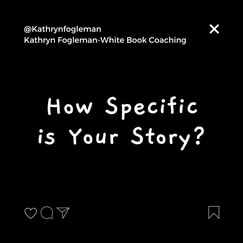 In my first book, The Dragon’s Son, one of my first reviews talked about a “little family” in the story that felt random and unnecessary. It horrified me, because that family was ABSOLUTELY necessary in the second book, and to my main character's backstory. But, because I had not given my readers the reason for this little family to be in the book, they were left thinking “What’s the point of these people?” To avoid this problem in your story, ask these questions:
If you can concisely sum up what your story is about, it will be far easier to write. Story is about someone solving a problem. It’s best to know exactly what that problem is before you begin writing. Are you ready?Is this overwhelming? Does the idea of writing a pager turner sound impossible? Do you want to be the author of the next best seller, but fear you won't meet your goals and expectations?
I'm hear to help. You can subscribe HERE and receive access to several free PDF books that will walk you through the steps of writing a compelling story with dynamic characters, PLUS be the first to get access to special coaching opportunities! 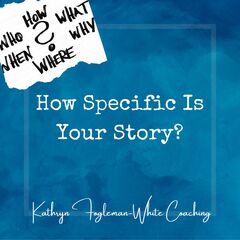
Recommended Books (with Amazon Affiliate links)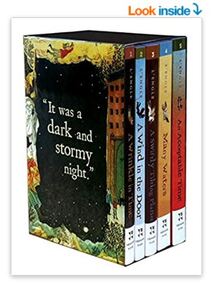 Even though I have yet to read the entire series, the first book - A Wrinkle In Time - does an excellent job of answering the basic Who, What, When, Where, Why, & How in the very first chapter. It makes the protagonist clear, the plot forces the protagonist to change and do things she normally wouldn't, it identifies both the external and internal conflict the protagonist must face, and it especially does a great job of showing you her desire and how she needs to change before the story ends. And, of course, while she is still the same little girl, she has grown and changed for the better by the end of the book. What is your next step as a writer?Is this overwhelming? Does the idea of writing a pager turner sound impossible? Do you want to be the author of the next best seller, but fear you won't meet your goals and expectations?
I'm hear to help. You can subscribe HERE and receive access to several free PDF books that will walk you through the steps of writing a compelling story with dynamic characters, PLUS be the first to get access to any coaching openings in my schedule!
Every good story can be explained as a series of events that happens to someone who is in pursuit of a difficult goal, and how they are forced to change as a result. But oftentimes we as readers and writers are left wondering “What is this person's goal?”
Goals are the protagonist’s driving desire to overcome and achieve. It is the yardstick that your readers will use to gauge everything your character goes through in the story. If you have filler and fluff that does nothing to push the character toward their goal, a reader will get bored and put the book down. There are two questions you should ask about your characters, especially your main character:
Recommended Book (with Amazon Affiliate Links)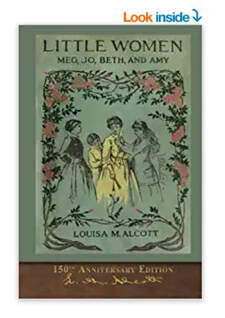
If you want to explore a book that does a great job of getting you - the reader - invested in the characters, I recommend you check out this one.
<--- ?? Just so you know, this is an Amazon Affiliate link, so if you purchase anything through it, I get a tiny commission that goes toward buying kids vitamins and cat food. Little Women is one of my favorite books! It follows the lives of the four March sisters—Meg, Jo, Beth and Amy— from childhood to womanhood and is loosely based on the author and her three sisters. The girls each have a marked personality of their own, and they quickly come to feel like your close friends. I laughed with them, cringed at them, and cried sometimes. I didn’t always agree with their choices, and didn’t like all the paths they took, but just like with good friends, I was okay with them becoming themselves. It is one of the best books to study for character development and drawing in reader investment, and I recommend it to everyone who asks. Is writing a gripping book overwhelming?
Does the idea of writing a pager turner sound impossible? Do you want to be the author of the next best seller, but fear you won't meet your goals and expectations?
I'm hear to help. You can subscribe HERE and receive access to several free PDF books that will walk you through the steps of writing a compelling story with dynamic characters, PLUS be the first to get access to coaching opportunities!
Many writers focus only on the plot of their story. They have a fantastic idea, but the story wanders and stagnates. Why? Was it because they were a pantser? Or did a plotter go stale? Neither. Usually, the author simply did not ask their story the right questions.
Story is about someone solving a problem. It’s best to know exactly what that problem is before you hit the publish button, or even begin to write. If you can concisely sum up what your story is about, it will be far easier to write, and have a much better chance of getting attention. How do you sum up a complex story? Try summing up your story by explaining what your theme, conflict, and plot are, and how they work together to solve the story problem.
Once you are able to explain what your theme, conflict, and plot are, you will find it much easier to sum up your story in a short paragraph (and even put it together in a gripping synopsis!). Once you can sum up your story, you can keep it focused, keep it strong, and it will make editing SO much easier for you. Book Recommendations (with Amazon Affiliate Links)
If you’d like to check out a well written book synopsis that outlines the 3 keys of their story, I recommend you read the synopsis of these well written books.
(BTW, these are Amazon Affiliate links. If you buy these books, you help their author, and you help me as well): Where are you in your writing journey?
Is this overwhelming? Does the idea of writing a pager turner sound impossible? Do you want to be the author of the next best seller, but fear you won't meet your goals and expectations?
I'm hear to help. You can subscribe HERE (or below) and receive access to several free PDF books that will walk you through the steps of writing a compelling story with dynamic characters, PLUS get early access to exciting writing career boosting opportunities!
Great writers always clue us into what the characters are thinking and feeling, because that’s where the story lives. But, that's easier said than done. How do you learn to get your reader to feel and put your book on the "All The Feels" list on Goodreads?
Well, my first suggestion is to read more books! Find some books known for giving you the feels, and read them. Dissect them. Watch how the author does it. I will list a couple I recommend below in an affiliate link! Next, ask yourself these questions:
Help the reader feel what the protagonist feels. Let the reader into their feelings at every turn. Give them what they need to be invested in the story. Don't bog them down with cool world crafting and spell mechanics and backstory. Just let them get in your character's head and heart, so they can celebrate, or cringe, or cry with your character. Book recommendations (with Amazon Affiliate Links)
Just click the book image, and it will take you straight to Amazon! If you purchase something, it will give me a tiny little commission that will probably be used to buy kids vitamins, dog treats, or more books.
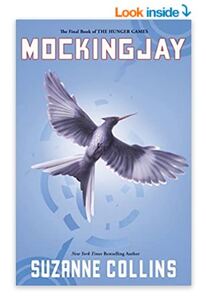
Mockingjay is the third book in the Hunger Games trilogy, and you really won't understand all of the emotions in it without the other two books. The other two books build up to this book, so it is RAW EMOTION. Yet, the author's writing style never changes between the books. You, as the reader, have just taken a wild journey with the character, and know what she loves, expects, and hopes for. So, before you know it, your emotions are wrapped up in her success and failure as well. 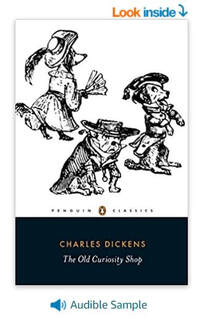
If you like classics, my mom recommends Charles Dickens for drawing in reader emotion. Specifically, she recommended The Old Curiosity Shop. Published in 1841, The Old Curiosity Shop was an instant bestseller that, even while it was criticized for its sentimentality, captured the hearts of the nation with its portrayal of little Nell Trent, who is thrown into a terrifying world when her beloved grandfather is unable to pay his debts to the loathsome Quilp. 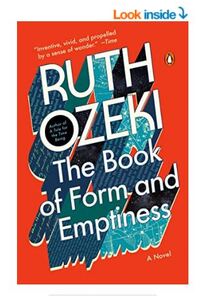
The Book of Form and Emptiness finds a mother and son grappling with the profound loss of the father of the family. While the mother’s anguish expresses itself in a hoarding problem, her son hears inanimate objects talking to him, and these voices eventually overwhelm in a cacophony that drowns out his own. Did I mention the book itself is also a character? Are you wanting to learn more about writing?
Is this overwhelming? Does the idea of writing a pager turner sound impossible? Do you want to be the author of the next best seller, but fear you won't meet your goals and expectations?
I'm hear to help. You can subscribe HERE and receive access to several free PDF books that will walk you through the steps of writing a compelling story with dynamic characters, PLUS get early access to book coaching opportunities and sales! |
The beasts of the field shall honour me, the dragons and the owls. - Isaiah 43:20
The AuthorKathryn WhiteSelf-published author of the fantasy series, Tales of the Wovlen, Kathryn spends a great deal of time in the world of her imagination, having tea with fire breathing dragons, writing books on flying space ships, and practicing her mad scientist laugh with gusto. However, on occasion, she returns to this world just to play with her dog, blog about her fun, and coach people through writing self-doubt. My First BookMy Latest BookConsider buying my books, or other books, using my affiliate links:
Never Miss a Post! Sign up for my Newsletter here!Archives
January 2024
Categories
All
|






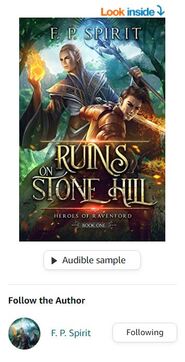
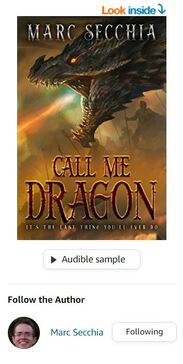



 RSS Feed
RSS Feed
